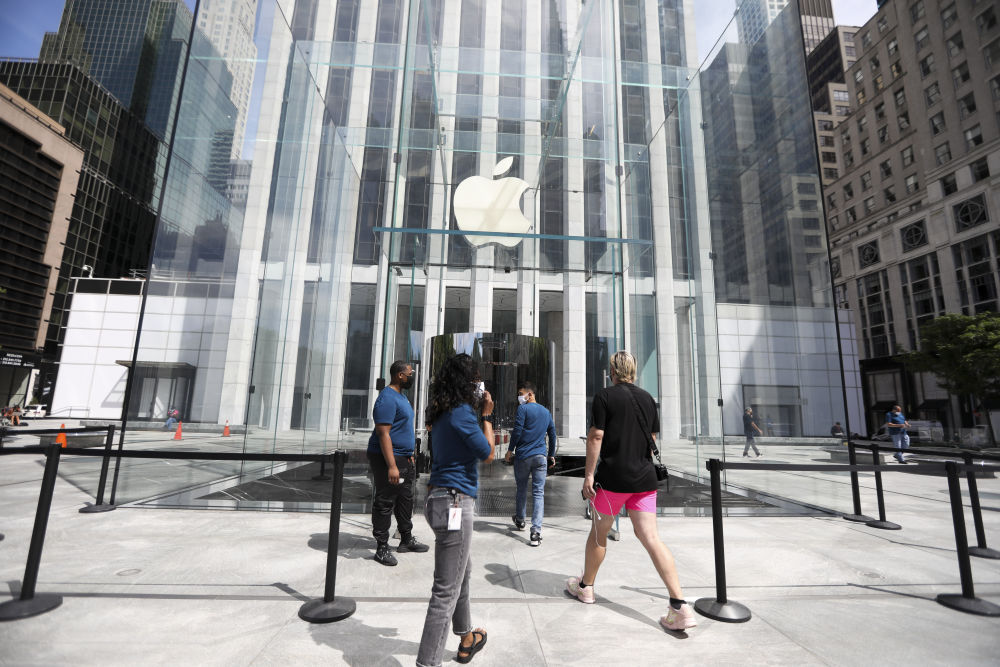
After releasing the iOS 18.3 operating system to the public last week, Apple quickly took further action to officially stop signing the iOS 18.2.1 version. This decision, for the majority of iPhone and iPad users, undoubtedly means the end of an era - those who have entered the new version of the operating system will no longer be able to go back to the previous version of iOS 18.2.1. What kind of scientific and technological logic and industry considerations are hidden behind this change? This article will conduct an in-depth analysis of this.
First, we need to review the background of the release of iOS 18.2.1. The release quietly came out on January 6, and Apple briefly noted in its announcement that the new version contains "important bug fixes." However, the announcement did not disclose exactly what bugs were fixed. This vague expression of its words has undoubtedly caused a lot of speculation and doubt from the outside world. Transparency and effective communication are crucial in the technology world, and Apple's performance in this area has clearly failed to meet the expectations of users.
Then, just three weeks later, on January 27, iOS 18.3 arrived. Compared to the low-key release of iOS 18.2.1, iOS 18.3 brings more significant updates. Apple officials claim that the new version not only improves the smart function, but also fixes a number of security vulnerabilities. Among them, the serious security flaw in AirPlay is particularly notable. Once the vulnerability is exploited by attackers, it may cause unexpected system termination or process memory damage through the LAN, which poses a serious threat to the user's device security. In addition, iOS 18.3 also fixed another bug that could cause an app to unexpectedly terminate. The timely release of these security patches undoubtedly highlights Apple's determination and efforts in ensuring the security of user devices.
The problem, however, is that Apple quickly stopped signing off on the old version while releasing the new one. This decision will come as a blow to those who have experienced compatibility, performance or stability issues after updating to iOS 18.3. They now face a dilemma: put up with the problems of the new version, or risk trying to downgrade through unofficial means (but doing so often comes with higher risks, such as data loss, bricking equipment, etc.).
From a scientific and technological perspective, Apple's decision to stop signing the old version may be based on the following considerations: First, to maintain system stability and security. With the release of the new version, the vulnerabilities and defects in the old version are gradually exposed and exploited. To guard against potential security risks, Apple needs to guide users to upgrade to the latest version as soon as possible. Stopping signing the old version can be used as a coercive means to force users to accept the new version.
Second, promote technological innovation and upgrading. Every update of the operating system means an iteration and upgrade of Apple at the technical level. By stopping signing on to older versions, developers and users will be more focused on new technologies and features in new versions, which will drive continued development and innovation across the entire ecosystem.
Finally, reduce technical support costs. As the old version is phased out, Apple can devote more resources to technical support and maintenance for the new version. This not only improves the efficiency and quality of technical support, but also reduces overall operating costs.
However, while Apple's decision seems logical, in practice it raises a series of questions. First, for those users who relied on the specific features of the old version, the incompatibility of the new version may cause them to be unable to use the device properly. This not only affects the user experience, but can also lead to user churn and decreased word-of-mouth. Second, the rapid phase-out of older versions may leave some users feeling neglected and left out. In the highly competitive smart phone market, user loyalty and satisfaction are the key to the survival and development of enterprises. This decision of Apple has undoubtedly damaged the interests and feelings of users to a certain extent.
In addition, we should also note that Apple tends to overemphasize new features and performance improvements when releasing new versions, while being vague about potential problems and risks. Not only does this lack transparency, but it can also mislead users into making bad decisions. In science and technology, accuracy and completeness of information are of Paramount importance. Apple should be more upfront with users and disclose known issues and risks in the new version in a timely manner so that users can make informed choices.
To sum up, Apple's decision to stop signing iOS 18.2.1 reflects its pursuit of system stability, security and technological innovation to a certain extent, but it has caused a series of problems in practice. In order to improve user experience and satisfaction, Apple needs to pay more attention to user needs and feedback, strengthen transparency construction and technical support. At the same time, when releasing a new version, it should also be more careful and comprehensive consideration of potential problems and risks, in order to provide users with a more stable, secure and reliable operating system experience.
In the future development, we hope that Apple can pay more attention to the interests and feelings of users, and face the market and users with a more open, inclusive and transparent attitude. Only in this way can we maintain a leading position in the fierce market competition and win the trust and support of users.

When German Chancellor Mertz officially announced that he would write a letter to the European Commission calling for the relaxation of the 2035 ban on the sale of fuel vehicles and for space to be reserved for hybrid and synthetic fuel models, this policy game that has affected the European automotive industry quickly attracted global attention.
When German Chancellor Mertz officially announced that he w…
On December 3rd local time, the copper price on the London …
The European Commission announced a new economic security s…
The European Commission announced a new economic security s…
For nearly a year, US President Donald Trump has launched a…
In December 2025, the Russia-Ukraine conflict entered its f…